- Home
- Paul Christopher
The Templar Conspiracy Page 24
The Templar Conspiracy Read online
Page 24
“There’s no time!” Holliday insisted. “That was just the start! You think it’s a coincidence with the president here?” He clutched at Lockwood in the darkness. “Where would he be?”
“The rink. The Abbey School.”
“Where would the Secret Service take him in an emergency? A blackout?”
“Back here.” Lockwood said. “His chopper’s on a temporary pad in the park.”
“We’ve got to stop him before it’s too late,” Holliday said firmly. He tugged hard on Lockwood’s arm. “Get us out of here. Now.”
“There are people injured here. My people. I can’t just leave them.”
“You can’t help them, either. This son of a bitch murdered the Pope and blew up the vice president. He just took out all your lights, power and communications, and I guarantee you, he’s not finished yet.”
Lockwood stumbled out into the hallway with Holliday and Peggy close behind. Plaster dust hung like a cloud and in the haze shadowy figures made their way to the shattered glass-front door. Finally they stood outside the building in the blowing snow. The entire town was dark except for the headlights of slow-moving vehicles across the park. There was no sign of the presidential motorcade.
“We’re going to freeze to death like this,” said Holliday, shivering.
“Come on,” said Lockwood. He led them down the street that ran in front of the building to a row of shops on the square. Lockwood stopped at the largest one and Holliday read the old-fashioned sign on the front: UNCLE JIMMY’S SPORT PARADISE. Lockwood didn’t hesitate. He put his boot through the metal-and-glass-front door, reached in and twisted the lock, then stepped inside. Holliday and Peggy followed. The place was dark and silent, a wide, long, low-ceilinged room divided into aisles. Lockwood found a big twelve-volt lantern and swung the beam around the room. Racks of antlers, a moose head, a stuffed lynx head and a lacquered blue marlin hung from the walls.
Lockwood shone the light down the middle aisle. At its end there was a rack of orange and camo quilted hunting jackets. They followed the policeman down the aisle and each of them pulled on one of the jackets.
“Now what?” Peggy asked.
“Weapons,” said Holliday.
“I’m not sure I want you armed,” said Lockwood.
“I don’t care what you’re sure of. I’m not going after Billy Tritt without something with a very large caliber in my hand.”
“I could lose my job,” said Lockwood.
“I could lose my life.”
“Point taken,” said Lockwood. “Gun up, I guess.”
Holliday chose a secondhand AR-15 with a sling and put it over his back. He stuffed his pockets with magazines, then chose a Mossberg 12-gauge autoloader, crammed five slug shells into the automag and stuffed his pants pockets with twenty more. For a handgun he chose a Colt M1911 .45-caliber semiautomatic pistol exactly like the one he’d used in combat from Vietnam to Somalia. He found a web belt with a pouch and loaded half a dozen magazines, while Peggy and Lockwood armed themselves.
“This is like an audition for Rambo Six,” Peggy said, choosing a rather unladylike Ruger Blackhawk. “What kind of bullets does this thing use?”
Lockwood had picked a Remington 480 Bushmaster to go along with the Walther on his hip. “Casulls, .454-caliber. You fire that thing, young lady, you be sure to hold it in both hands. He handed her a box of the large shells and she methodically began to load the cylinder.
“Young lady, my ass,” she muttered.
“What if the good guys see us wandering around like this?”
Lockwood took out his badge and ID wallet, slipped out the badge and pinned it on the front of the camopatterned hunting jacket. “This will have to do,” he said. “Now, what exactly are we looking for?”
“The explosion was a distraction,” said Holliday. “It’s almost certainly designed to draw away local law enforcement and get the Secret Service to exfiltrate the president. That means they’ll bring him back to the chopper and get him the hell out of here. That’s the obvious protocol.”
“So you think this Tritt character will be close by?”
“I can almost guarantee it.” Holliday nodded. “He’ll have night-vision equipment and something big enough to bring the helicopter down before it gets very far off the ground. A Stinger or something like it. And that won’t be the end of it, either.”
“That’s not enough?” Lockwood said.
“The whole idea is to create enough chaos to justify Matoon pressuring the White House into declaring martial law. I’m guessing Tritt’s got more truck bombs that he’s going to let off, probably using some kind of remote detonator.”
“Cell and radio are out. How’s he supposed to set these things off?”
“Cell phones are out, but satellite phones aren’t.”
“How do we know this guy if we see him?” Lockwood asked. “My town’s being blown to hell and its pitch-dark.”
“Look for the guy carrying a surface-to-air missile,” said Holliday.
“This is just like the good old days,” grunted Lockwood. “Trying to kill an enemy you can’t see.”
“I hated the good old days,” said Holliday.
“Me, too,” answered Lockwood. They went out into the cold again.
At the Abbey School the Secret Service had found and routed the half dozen men in phony National Guard uniforms, killing four and wounding two, who were now being held prisoner. The two survivors quickly told the Secret Service about the plan to blow up the entire school with an ANFO bomb, and the president and his entourage were immediately removed from the premises, leaving the evacuation of the other people at the stadium to the local police. Twenty-five minutes after the explosion that had turned out the lights all over Winter Falls the presidential limousine was on its way back to the center of town and the waiting Marine One helicopter.
Billy Tritt sat in his room in the inn and tried to control his anger. The first explosion had gone off perfectly, sending Malcolm Teeter to whatever hell awaited his shriveled, mindless soul.
Windows had blown out in half of Winter Falls, there was panic everywhere and a huge fire was developing on the eastern edge of town. It had been distraction enough to draw the fire trucks out of their hall on the west side of the Municipal Building and from the looks of it from his position, part of the roof of the police department had collapsed. With the cessation of communication resulting from the triple threat of the destruction of the electrical substation, the telephone switching hub and the two cell towers serving Winter Falls, both the Headquarters Emergency Management unit of the New Hampshire State Police in Concord and the F Troop station in Twin Mountains would have automatically been alerted, but F Troop was sixty miles away and Concord ever farther. At the very least it would take F Troop the better part of an hour to appear and the HQ SWAT team about half an hour longer.
However, the second truck bomb at the Abbey School had not detonated for some reason and Tritt had been forced to go to his Plan B alternative. The second bomb should have demolished the main building of the school, the stone debris in turn destroying the relatively flimsy construction of the arched shell enclosing the hockey rink. By now Tritt should have been halfway across Lake Winnipesaukee, riding on the snowmobile he’d left behind Gorman’s Restaurant earlier in the evening.
Reaching the other side of the lake and his rental car, Tritt would have detonated the other four truck bombs spread around the town via satellite phone, and while Winter Falls burned he’d be climbing aboard the little Cessna he’d chartered at Laconia Airport and heading into oblivion once more.
Instead he was on the third floor of an old brick bed-and-breakfast in a snowstorm, awaiting the inevitable arrival of the president and his retinue. It would make his own exfiltration considerably more dangerous, but he’d contracted for the president’s death and, if nothing else, he always fulfilled his contracts.
Tritt shifted slightly in his chair beside the window. They’d be coming from the west
and they’d be coming fast, lights flashing and sirens wailing. The security they used for once-upon-a-time presidents was definitely second-tier—new Secret Service types as well as old burnouts—but it was enough to give him trouble. There’d be a few local cops and a squad of state police from the VIP protection bunch, but that would be about it.
They’d all heave a sigh of relief once the chopper rose into the snowy air, and that’s when he would strike. He reached over and laid his hand on the tube of the ATC Confined Space Anti-Tank weapon. Unlike the weapon he’d used in Italy, the ATC was unguided, but from his window the chopper was no more than 150 meters away. He could hardly miss. The two-kilo, high-explosive warhead would turn the VIP helicopter into scrap metal in a split second.
He had timed it roughly and it would take him about thirty seconds to get out through the main-floor kitchen of the hotel and another minute to reach Gorman’s Restaurant and the dock that ran out to the ice beside it. It was really the only way out.
Whatever was left of the Maine’s Right Arm bunch he’d brought with him were to escape by road, but if the state police were any good at all they’d have expanding perimeter roadblocks established very quickly, especially with a President of the United States involved, soon-to-be-ex or otherwise.
If the MRA types were dumb enough they’d try to shoot their way out, which would mean even more fuel to Matoon and the Sinclair bitch’s fire. The whole plan was insane, of course, but so was Hitler, and it didn’t matter, anyway, since they paid well. He could and would retire on what they were paying him for this night’s work.
He heard the sirens now, approaching fast. He parted the curtains slightly and opened the old-fashioned casement window. He picked up the antitank weapon from the side table on his left, balanced it on his right shoulder and used the index finger of his right hand to disengage the two safeties. He moved the index finger from the safety switches on the side of the tube and laid it firmly on the firing button that was located just in front of the optical night sight. He waited and for a moment he let himself see the clear Caribbean blue of the water just offshore from his place at Lyford Cay. He slowly let the air out of his lungs, imagining himself snorkeling above a school of darting spotted drums. Below him the motorcade came into view. They were here and it was time to end it.
37
“Shit,” said Randy Lockwood. Out of the whirling snow he could see the lead car of the motorcade, light bar flashing, the sound of its siren muffled by the storm. If Tritt was nearby they had no more than a few seconds to find him. Behind the Winter Falls cruiser he could see the trailing line of Escalades, one of them with the president inside. He gritted his teeth and prayed that this man Holliday was wrong.
As a rule the average person rarely looks higher than the horizon directly in front of him. This is a natural instinct bred into the human race for millions of years, since man’s predators almost inevitably approached him on the same level, whether from the front or the rear. It is also the first instinct to disappear very quickly among military personnel and even civilians in places like Iraq and Afghanistan; like the unofficial motto of the Eighty-second Airborne in Vietnam, death very often came from above.
Holliday knew that if Tritt was nearby he’d go for the high ground. The square in front of the Municipal Building had two-story, Victorian-era buildings on the east side and the same on the west, with the Municipal Building forming the northern side of the square. The south, or Main Street side, was taken up by the Dominion Hotel, a squat, seven-story, flat-roofed brick building that looked down onto the park that formed the center of the square.
As the motorcade swept around the eastern side of the square Holliday looked up. At first nothing seemed out of place. The Dominion Hotel, like every other building in Winter Falls, was dark.
“Anything?” Lockwood said.
“No,” said Holliday, squinting through the heavy snowfall. The motorcade was pulling up in front of the Municipal Building.
“There!” said Peggy, pointing.
“What?”
“Third floor, fourth from the left. The window’s open! Who the hell would have a window open on a night like this?”
Holliday stared upward, following her pointing finger. He caught a flutter of movement as the wind billowed the curtains. It was Kandahar, before he’d lost his eye. A fluttering window and a shadow with a cell phone. The Humvee stopped just in front of the IED before it exploded and the .50-caliber machine gun on the vehicle shredded the window frame around the twitching curtain and the shadowy figure behind it. He didn’t hesitate and neither did Lockwood. They fired simultaneously just as Tritt’s finger pushed down on the firing button of the antitank rocket.
The world exploded all around them. A flame trail from the rocket arced down from the hotel window, catching the Super Puma helicopter squarely between the sliding door and the slightly sagging multiple rotors, striking the big twin Turbomeca engines and rupturing the fuel lines. For a fraction of a second there was silence and it seemed as though little or no damage had been done. Then the explosive warhead of the rocket detonated and the entire helicopter was enveloped in a growing fireball. The blast wave knocked Holliday, Peggy and Lockwood to the ground as fractured pieces of rotor spun off in all directions, one piece slicing through the front entrance of Uncle Jimmy’s Sport Paradise, while a second, larger piece sawed through the middle of the lead police cruiser in the motorcade, instantly killing both the driver and his partner.
Through the smoke and flames there was no way to know what had happened to the president. A cloud of choking smoke drifted over the square as Holliday, Lockwood and Peggy picked themselves up. Combined with the heavy snowfall, visibility was now almost zero.
“He was on the third floor,” said Lockwood.
“Which way would he go?” Holliday asked.
“If he’s smart he’ll figure on roadblocks.”
“What does that mean?”
“He’s probably got a snowmobile someplace. They use them to get out to the ice-fishing huts. It wouldn’t look out of place down by the docks.”
Holliday nodded. “He cuts across the lake and he’s gone before anybody has time to think. Somewhere along the line he dials his sat phone and blows Winter Falls to hell.”
“Something like that.”
Holliday turned to Peggy. “Find the top cop in charge over there,” he said, pointing toward the flaming remains of the helicopter. Tell whoever it is that the chief and I are going after Tritt, and they should start looking for more truck bombs before it’s too late.”
“You’re not just trying to get rid of me are you?”
“Don’t be an idiot. I’m trying to save lives. Go!”
She went.
“Now what?” Holliday said.
“Follow me,” said Lockwood. He turned and disappeared into the smoke and snow, heading across the street to the inn.
It had been too soon, but Tritt didn’t have any choice. He fired the rocket, dropped the hot metal tube unceremoniously off his shoulder and headed for the door, patting the pocket of his heavy parka to make sure the satellite phone was still there. He ran out into the dark hallway, ignored the elevator to the left and turned right until he reached the door leading to the stairwell.
A minute later he reached the lobby, which was now swarming with guests and hotel employees. People were calling out to one another, someone was crying and flashlight beams were cutting through the haze that had started filling up the main-floor reception area. Everything smelled of smoke and jet fuel. No one noticed as Tritt headed into the restaurant at the rear of the hotel, then pushed through the swinging doors leading into the kitchen. Ninety seconds after destroying the helicopter in the square he was racing down the alley behind the hotel, and two minutes after that he was turning the key in the ignition of the big, silver Yamaha Vector snowmobile parked behind the patio of Gorman’s Restaurant. He twisted the throttle, turned the snowmobile into a tight circle and headed west, out onto the froz
en lake.
Tritt smiled behind his heavy woolen balaclava mask and stared out into the snow-filled emptiness of the night. The job was done. With a top speed of seventy miles an hour, no one could catch him now. At the halfway mark he’d stop the vehicle, take out the satellite phone and punch the preset number. It would be the largest non-nuclear blast since the Texas City explosion in 1947, which virtually leveled the entire town.
“We’re too late,” said Lockwood. Both men stood at the bottom of the steps that led down to the dock behind Gorman’s Restaurant. They could see the imprints of Tritt’s boots in the fresh snow and they could faintly hear the sound of the receding snowmobile. There were three more of the vehicles parked at the foot of the stairs, all three surrounded by the pungent odor of freshly spilled gasoline. Tritt had ripped out the fuel lines. “We’ll never catch him. The son of a bitch is going to blow up my town and there’s not a damn thing I can do about it.”
“I wouldn’t give up quite so quickly,” said Holliday. He walked across the ice to where the line of iceboats was parked. He ran his hand over the sleek, jet-black fiberglass body of one of the water-bug-shaped boats. “These are Monotype-XVs,” he said. “I didn’t even know they had them in the States.”
“You know how to sail one of these things?” Lockwood asked. The drag-racer bodies were about thirty feet long, with masts almost as high and a broad outrigger with a long bronze-and-steel blade at each end.
There was a third blade at the rear of the body, and the insectlike boat was steered with a large automobile-style wheel in the snug back cockpit. The pilot of the boat also handled the movement and adjustment of the sail through a system of lines and pulleys, while the front cockpit for the copilot essentially provided ballast and a counterweight to prevent the front end of the craft from taking to the air.

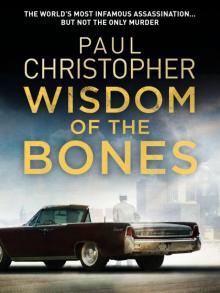 Wisdom of the Bones
Wisdom of the Bones The House of Special Purpose
The House of Special Purpose The Second Assassin
The Second Assassin Michelangelo's Notebook
Michelangelo's Notebook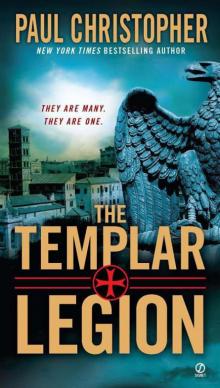 Templar Legion
Templar Legion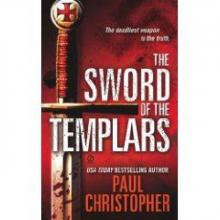 The Sword of the Templars t-1
The Sword of the Templars t-1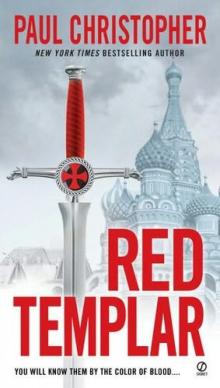 Red Templar
Red Templar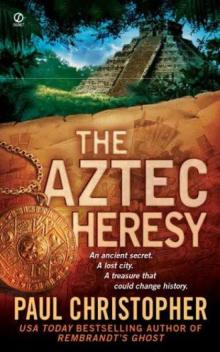 The Aztec Heresy
The Aztec Heresy The Templar Legion
The Templar Legion Rembrandt's Ghost
Rembrandt's Ghost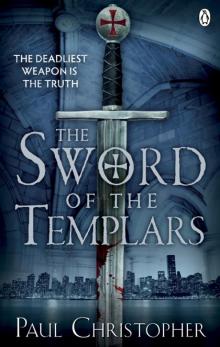 Sword of the Templars
Sword of the Templars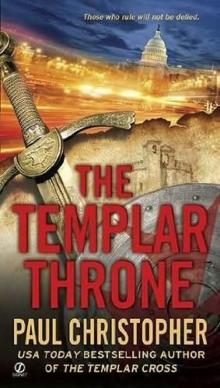 The Templar throne t-3
The Templar throne t-3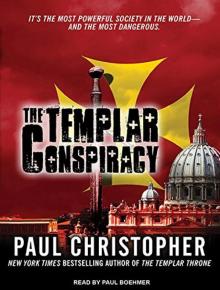 The Templar Conspiracy
The Templar Conspiracy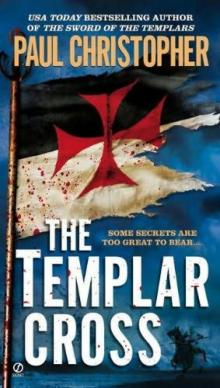 The Templar Cross t-2
The Templar Cross t-2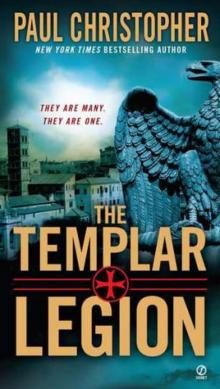 The Templar Legion t-5
The Templar Legion t-5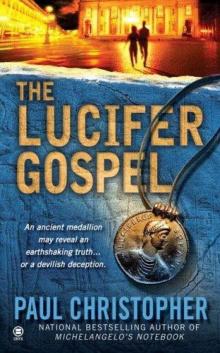 The Lucifer Gospel
The Lucifer Gospel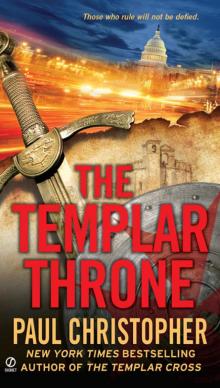 Templar Throne
Templar Throne Michelangelo_s Notebook fr-1
Michelangelo_s Notebook fr-1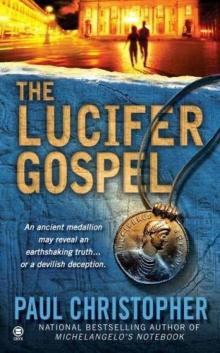 The Lucifer Gospel fr-2
The Lucifer Gospel fr-2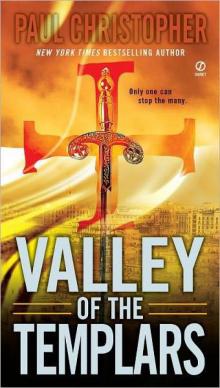 Valley of the Templars ts-7
Valley of the Templars ts-7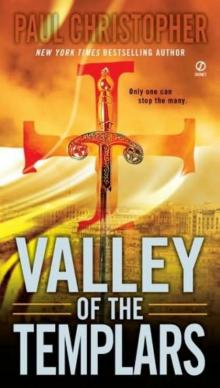 Valley of the Templars
Valley of the Templars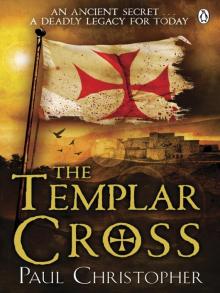 Templar Cross
Templar Cross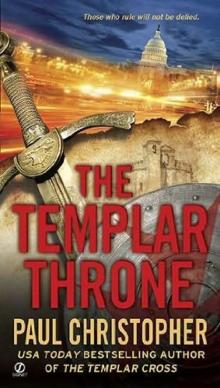 The Templar Throne
The Templar Throne The Templar Cross
The Templar Cross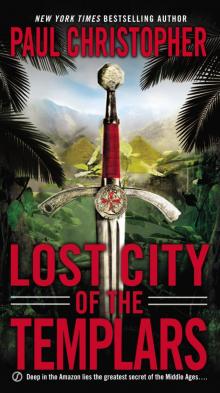 Lost City of the Templars
Lost City of the Templars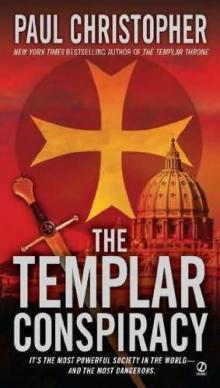 The Templar conspiracy t-4
The Templar conspiracy t-4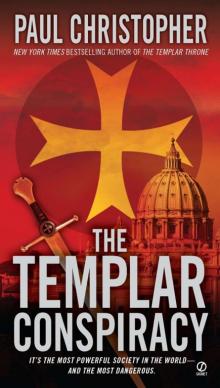 Templar Conspiracy
Templar Conspiracy